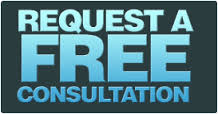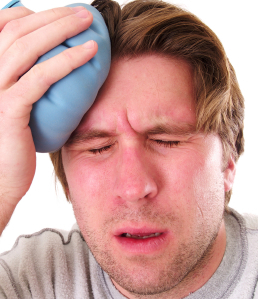According to the National Headache Foundation, over 45 million Americans suffer from chronic, recurring headaches and of these, 28 million suffer from migraines. About 20% of children and adolescents also experience significant headaches. There are many different types of headaches.
Cluster Headache Cluster headaches are relatively uncommon, but these headaches cause excruciating, sharp-as-knife pain around one eye. Attacks occur daily in clusters of weeks or months, then disappear completely for months or years. They are four times more common in men than women, and typically start before age 30. See your doctor if you think you have a cluster headache.
Rebound Headache
Rebound headaches occur in less than 2% of patients whose persistent headache pain causes them to overuse headache medication. These headaches may worsen with physical or mental exertion. Talk to your doctor if you feel that you may be experiencing these headaches.
Sinus Headache
Sinus headaches are headaches with a deep and constant pain in the cheekbones, forehead, or bridge of the nose. This pain usually intensifies with sudden head movement or straining and is usually accompanied by symptoms such as fever, runny nose, and clogged ears. tension headaches and migraine headaches are most common. Since these two types of headaches may be treated differently, determining which type you have is a critical step in pain relief.
Tension Headache
Tension headaches are sometimes called muscle contraction headaches. The pain is usually a dull ache on both sides of the head and has been described as feeling like a tight band across the front of the head. It is also associated with stiffness of the neck/shoulder and frequent pain.
Migraine Headache
Migraine headaches produce moderate to severe pounding or throbbing pain, common on one side of the head. Migraine pain is often accompanied by nausea, vomiting, dizziness, and sensitivity to light and/or sounds.
TMJ Migraine Headache:
If you suffer with complaints of migraine or other headache pain, I would like to make you aware of one basic scientific fact that is undeniable: TMJ or jaw joint dysfunction, is the major cause of your suffering. Your doctors, including neurologist, have simply not received the dental training required to be able to diagnose TMJ problems and how they relate to your migraine or headache pain. That is the main reason there is so much skepticism about TMJ treatment from the medical profession. Physicians just don’t know enough about it. Furthermore, many dentists jump on the bandwagon thinking that they can cure these ailments, only to find that they lack the skill and experience to get the job done.
Symptoms of TMJ Migraine Headache:
- Pain or tenderness in the face, jaw joint area, neck and shoulders, and in or around the ear when you chew, speak, or open your mouth wide
- Limited ability to open the mouth very wide
- Jaws that get “stuck” or “lock” in the open- or closed-mouth position
- Clicking, popping, or grating sounds in the jaw joint when opening or closing the mouth (which may or may not be accompanied by pain)
- A tired feeling in the face
- Difficulty chewing or a sudden uncomfortable bite – as if the upper and lower teeth are not fitting together properly
- Swelling on the side of the face, which may occur on one or both sides of the face
How are TMJ migraine patients evaluated? Dental and medical evaluation,clinical exam, including examination of chewing muscles and other related muscle to the joints. Observing patient’s difficulty of the opening the mouth and chewing. Diagnostic dental x-rays and medical x-rays of the joints. Lateral skull x-rays with analysis to determine the skeletal component of the joint.
Night Guards: Some dentists use night guards to treat TMJ. My studies have shown that use of night guard does not help TMJ headaches, but it will exacerbate the symptoms and does not offer any solution to the cause.
Successful Treatment Options for TMJ Disorder:
First line of defense is to seek help with a dentist whom has extensive training, continuous studies and experience on this area. Treatment is customized for the individual patient with definitive diagnosis. Every patient has a different degree of the derangement of the TMJ Disorder.Most important is to diagnose and come up with a treatment plan to that diagnosis.
If you suspect that you might have TMJ Migraine, I would be glad to examine you, to see if this is in deed the case and plan a treatment for you. This examination would be free of charge to you.
In dentistry experience and Continuing Education are everything. Dr. Parvin Carter has over 30 years of experience in Practicing General Dentistry and 25 years in Orthodontics. She has thousands of hours of advanced training. In 2000, Academy of General Dentistry awarded Dr. Carter a Certificate of Mastership (MAGD) in General Dentistry. According to the Journal of the Academy of General Dentistry, only 1% of US dentists achieve this high level of advancement. Dr. Carter is a Certified and Preferred Provider of Invisalign. She has successfully treated over 400 patients with Invisalign.To find out more please see http://www.parvincarter.com
Did you enjoy this blog? if yes would you send it to a friend please? .





